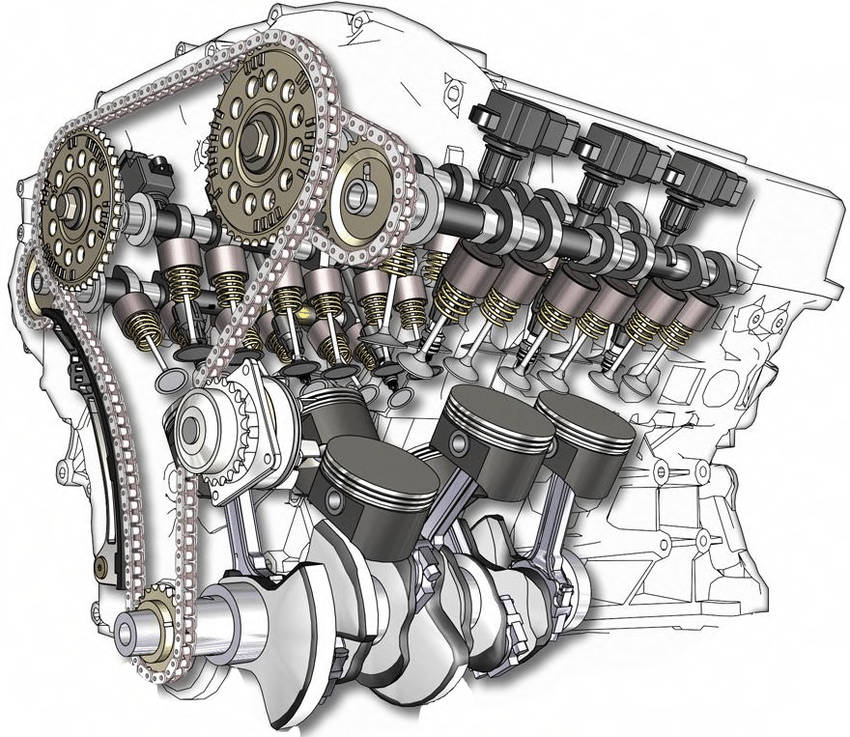
The internal combustion engine is the most popular form of power generation for automobiles today. It is a complex system of interconnected parts that convert fuel into usable energy for the vehicle to propel itself forward.
The two most common types of internal combustion engines are gasoline and diesel engines. Gasoline engines are the most common type of engine found in passenger vehicles. They are generally smaller, lighter, and less expensive to produce than diesel engines. Gasoline engines work by using spark plugs to ignite a mixture of fuel and air. This mixture is then compressed within the engine and is ignited by the spark plug. The resulting combustion drives the pistons, which turn the crankshaft and ultimately power the wheels.
Diesel engines are more powerful and generally more efficient than gasoline engines. Unlike gasoline engines, diesel engines rely on compression rather than spark plugs to ignite the fuel. This compression causes an increase in the temperature and pressure within the engine and results in the fuel igniting. This results in higher engine power and greater fuel economy.
Both gasoline and diesel engines have their advantages and disadvantages. Gasoline engines are generally less expensive to produce and easier to maintain, while diesel engines are typically more powerful and fuel-efficient. However, diesel engines are more expensive to purchase and require more frequent maintenance due to the high temperature and pressure of the combustion process.
Gasoline engines have become increasingly efficient over the years, with the introduction of direct injection technology and turbocharging. Direct injection technology allows gasoline engines to more accurately control fuel delivery, resulting in better fuel economy and reduced emissions. Turbocharging is a process whereby air is compressed and forced into the engine, allowing for more power and efficiency.
Diesel engines have also become more efficient with the introduction of common rail systems and particulate filters. Common rail systems allow for more precise fuel delivery, resulting in better fuel efficiency and reduced emissions. Particulate filters trap and reduce the amount of harmful exhaust particles released into the atmosphere, making diesel engines more environmentally friendly. In conclusion, gasoline and diesel engines are two of the most popular forms of internal combustion engines in the automotive industry today.
Both types of engines have their advantages and disadvantages, so it is important for consumers to consider their needs when choosing which engine to purchase. Gasoline engines are generally more affordable and easier to maintain, while diesel engines are typically more powerful and fuel-efficient. Regardless of the type of engine chosen, both gasoline and diesel engines have become increasingly efficient over the years and are helping to reduce emissions and improve fuel economy.
Written by ProfT for Naijatipsland.com










